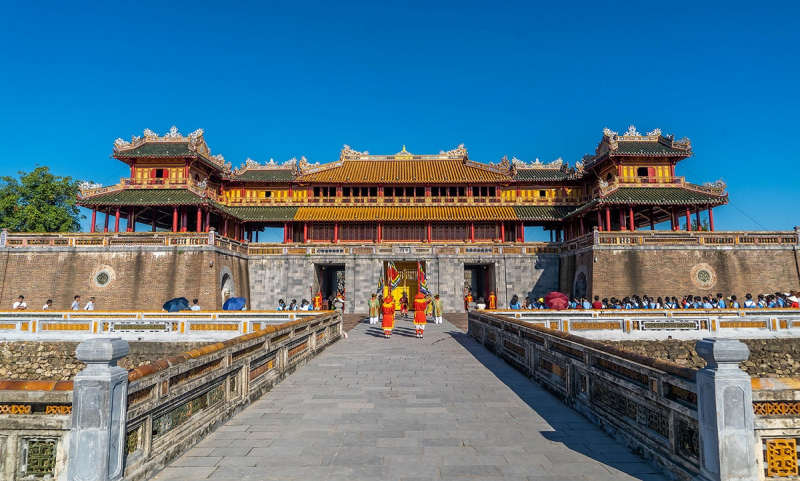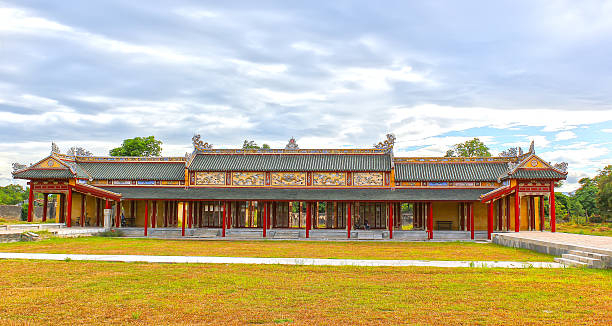Hue Imperial Citadel
The Imperial City of Hue, famous for being one of Vietnam's seven UNESCO World Heritage Sites, has long been a must-see sight for travelers exploring the hidden beautiful historical sites in Vietnam. This was a walled stronghold and palace of the historic city of Hue, which served as the capital city of the Nguyen Dynasty for 140 years, from 1805 to 1945.
Gia Long, the emperor who created the Nguyen Dynasty, wanted to build magnificent architecture in 1803. The Imperial City of Hue was ultimately finished under the reign of Minh Mang in 27 years, making it the most colossal edifice being created in contemporary Vietnam history, using thousands of employees, millions of cubic meters of rock, and a large volume of onerous tasks. It is located on the northern bank of the Huong River, which turns south, and has a total land area of 520 hectares. The site was designated a UNESCO World Heritage Site in 1993, with the remaining structures actively renovated and maintained following the damage caused by the Vietnam War.
Hue's Imperial City has a circle of 10 kilometers, a height of 6.6 meters, and a thickness of 21 meters, with forts meanderingly placed, followed by cannons, artilleries, and ammunitions. The fortification was first constructed entirely of earth, and later rebuilt with bricks. The intricate canal system surrounding the city serves not only as protection but also as a waterway with a length of about seven kilometers.
Ten great beautiful gates entrance to the Imperial City of Hue, which is separated into two major areas, excluding residences and mansions: The Citadel and The Forbidden City. The former protected the significant palaces within, while the latter housed the emperor and his family as well as the court's workplace. All of the generally traditional Eastern architecture, such as grand palaces, tombs, and museums, coexist to create an incredibly entertaining destination right in the heart of Vietnam.
Location: the North of Perfume River, Hue City, Thua Thien-Hue Province.












